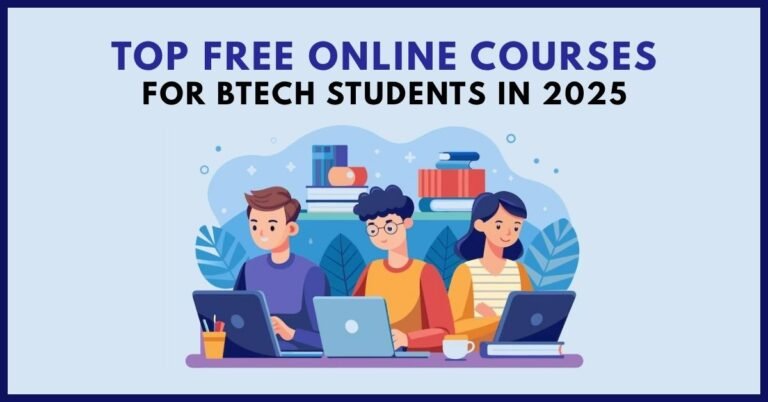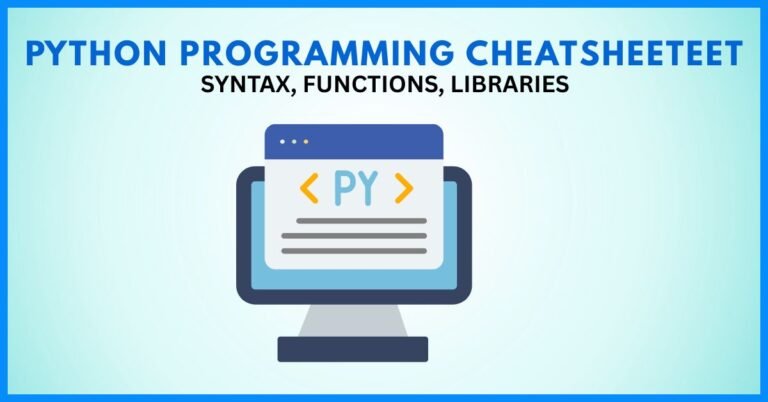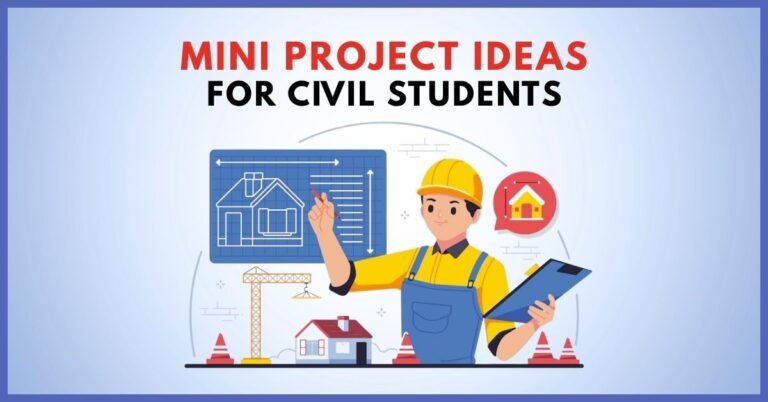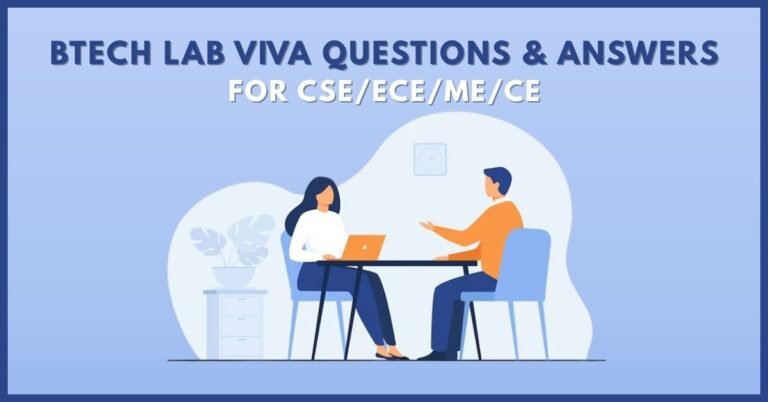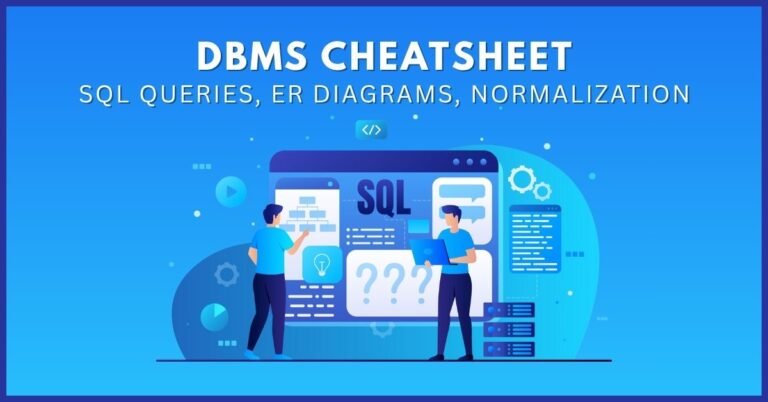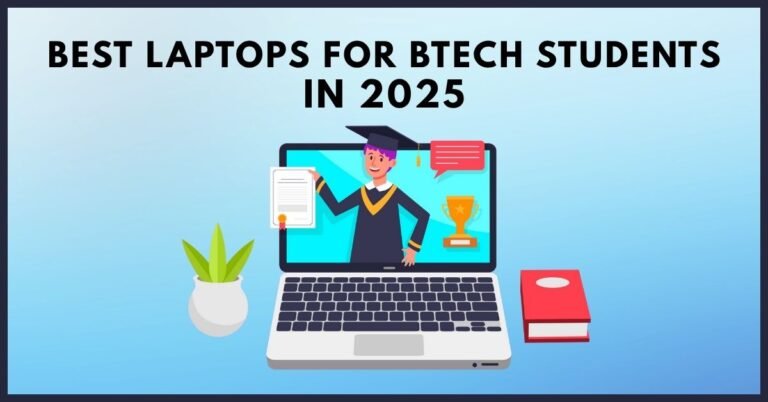How to Prepare for Campus Placements from 1st Year
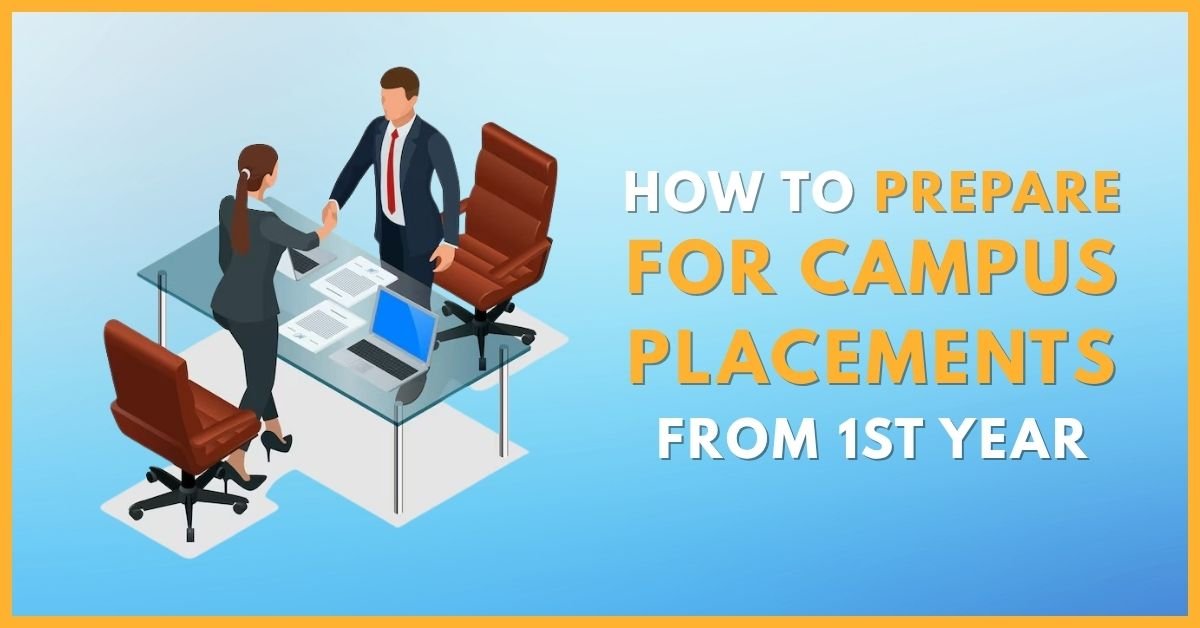
Getting a good placement is one of the biggest goals for most engineering students. But here’s the catch: if you wait until your 3rd or 4th year to start preparing, you’ll be competing with students who began their journey much earlier. The truth is, placement preparation should ideally start from your 1st year itself.
In this guide, we’ll break down a clear, year-by-year roadmap to help you get ready for campus placements right from day one. Whether your goal is to crack product-based companies like Microsoft, Google, or Amazon, or land a solid job through campus recruitment drives, this article will give you a step-by-step action plan.

Why Start Preparing for Placements in 1st Year?
Many students assume that placements are only a concern during their final year. But think about it:
- Coding, aptitude, and communication skills take time to develop.
- Top recruiters often prefer students with consistent performance and a strong foundation.
- Early preparation gives you more time for internships, projects, and certifications.
- You’ll be far more confident compared to peers who start late.
In short, starting early = less stress + better results.
Roadmap for Campus Placement Preparation (1st Year to Final Year)
Let’s go year by year so you know exactly what to focus on.
1st Year: Build the Foundation
Your first year is about settling into engineering, but it’s also the best time to start laying the groundwork for placements.

Key Focus Areas:
- Basic Programming: Learn C, C++, or Python. Focus on problem-solving basics.
- Communication Skills: Start improving English vocabulary, grammar, and speaking confidence.
- Networking: Build friendships with seniors and alumni who can guide you.
- CGPA: Maintain a decent academic record. Most companies have a CGPA cutoff.
Action Plan:
- Pick one programming language and practice regularly on platforms like HackerRank, LeetCode, or Codeforces.
- Join college clubs (coding, debate, robotics, etc.) to improve teamwork and leadership skills.
- Start reading newspapers or business magazines to improve general awareness and vocabulary.
2nd Year: Strengthen Skills
By now, you should be comfortable with programming basics. In 2nd year, it’s time to get serious about placements.
Key Focus Areas:
- Data Structures and Algorithms (DSA): Begin solving problems daily.
- Core Subjects: Understand OOPS, DBMS, OS, and Computer Networks (for CS/IT).
- Mini Projects: Build small projects to showcase in your resume.
- Soft Skills: Participate in group discussions, public speaking, or seminars.
Action Plan:
- Dedicate at least 1–2 hours daily for coding practice.
- Take online courses on platforms like Coursera, Udemy, or NPTEL.
- Start contributing to open-source or GitHub projects.
- Attend hackathons and coding contests.
3rd Year: Internship and Advanced Preparation
The 3rd year is a turning point. This is when internship opportunities and placement tests start appearing.
Key Focus Areas:
- Aptitude & Reasoning: Practice quantitative aptitude, logical reasoning, and verbal ability.
- Internship Prep: Apply for summer internships; they boost your resume.
- Mock Interviews: Practice HR and technical interviews with peers or online mock tests.
- Resume Building: Draft a clean, professional resume with projects, skills, and achievements.
Action Plan:
- Use books like RS Aggarwal for aptitude.
- Give regular mock tests on platforms like AMCAT, CoCubes, or PrepInsta.
- Polish your LinkedIn profile and connect with recruiters.
- Prepare answers to common HR questions: “Tell me about yourself,” “Why should we hire you?” etc.
4th Year: Final Sprint
By 4th year, placements are in full swing. Now your focus should be on polishing everything you’ve worked on.
Key Focus Areas:
- Company-Specific Prep: Research past papers and recruitment patterns of your target companies.
- Mock GD & PI: Practice group discussions and interviews with mentors or peers.
- Confidence Building: Work on body language, eye contact, and speaking clearly.
- Backup Plan: Appear for off-campus drives, government exams, or higher studies prep.
Action Plan:
- Prioritize revision of DSA, aptitude, and core subjects.
- Solve previous year placement papers.
- Stay updated with trending technologies like AI, ML, Cloud, and Data Science.
- Stay calm and positive during interviews.
Essential Skills for Cracking Campus Placements
Regardless of which year you’re in, these are the non-negotiable skills you must build:
- Coding & Problem-Solving
- Platforms: LeetCode, GeeksforGeeks, HackerRank
- Focus: Arrays, Strings, Linked List, Trees, Graphs, Dynamic Programming
- Aptitude & Reasoning
- Topics: Profit & Loss, Probability, Time-Speed-Distance, Puzzles, Logical Sequences
- Core Subjects (for CS/IT)
- DBMS, OS, OOPS, Computer Networks, Software Engineering
- Communication & Soft Skills
- Group Discussions
- Email Writing
- Presentation Skills
- Resume & Profile Building
- Keep it one page, clean, and highlight skills + projects.
Common Mistakes Students Make in Placement Preparation
- Starting late (only in 3rd/4th year).
- Ignoring aptitude and soft skills.
- Copy-pasting projects from the internet without understanding them.
- Having a cluttered or fake resume.
- Lack of consistency in coding practice.
Avoid these, and you’ll already be ahead of 50% of your batch.
Resources for Placement Preparation
- Websites: GeeksforGeeks, InterviewBit, PrepInsta
- Books: “Cracking the Coding Interview” by Gayle Laakmann McDowell, “RS Aggarwal Aptitude”
- Online Courses: Coursera, Udemy, NPTEL
- Communities: College clubs, coding forums, LinkedIn groups
FAQs on Placement Preparation
1. Can I get a good placement if I start preparing from 3rd year?
Yes, but you’ll need to put in extra effort. Starting early gives more time and less stress.
2. Is coding necessary for all placements?
For IT and product-based companies, yes. For non-IT roles, aptitude and communication skills matter more.
3. How important is CGPA in placements?
Most companies keep a cutoff (6.0–7.0). Beyond that, skills and performance in interviews matter more.
4. How many projects should I add to my resume?
At least 2–3 good projects (mini + major), preferably hosted on GitHub.
5. Should I join coaching for placement prep?
It depends. Many students succeed through self-study and online platforms, but coaching can help with structured guidance.
Conclusion
Campus placements are not just about last-minute cramming; they’re about consistent growth across all four years of engineering. If you start preparing from 1st year—learning coding, building projects, improving soft skills, and practicing aptitude—you’ll enter final year with confidence and an edge over others.
So, don’t wait. Start today, stay consistent, and make your 4 years count. Your dream job will follow.
Author Profile
- At Learners View, we're passionate about helping learners make informed decisions. Our team dives deep into online course platforms and individual courses to bring you honest, detailed reviews. Whether you're a beginner or a lifelong learner, our insights aim to guide you toward the best educational resources available online.
Latest entries
 UncategorizedOctober 3, 2025AKTU BTech Important Questions & Notes
UncategorizedOctober 3, 2025AKTU BTech Important Questions & Notes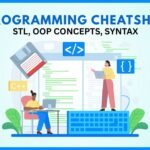 Exam Revision NotesSeptember 24, 2025C++ Programming Cheatsheet – STL, OOP Concepts, Syntax
Exam Revision NotesSeptember 24, 2025C++ Programming Cheatsheet – STL, OOP Concepts, Syntax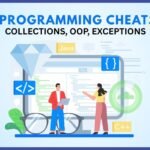 Exam Revision NotesSeptember 22, 2025Java Programming Cheatsheet – Collections, OOP, Exceptions
Exam Revision NotesSeptember 22, 2025Java Programming Cheatsheet – Collections, OOP, Exceptions UncategorizedAugust 28, 2025BTech 1st Year Notes & Cheatsheets (Subject-Wise)
UncategorizedAugust 28, 2025BTech 1st Year Notes & Cheatsheets (Subject-Wise)

